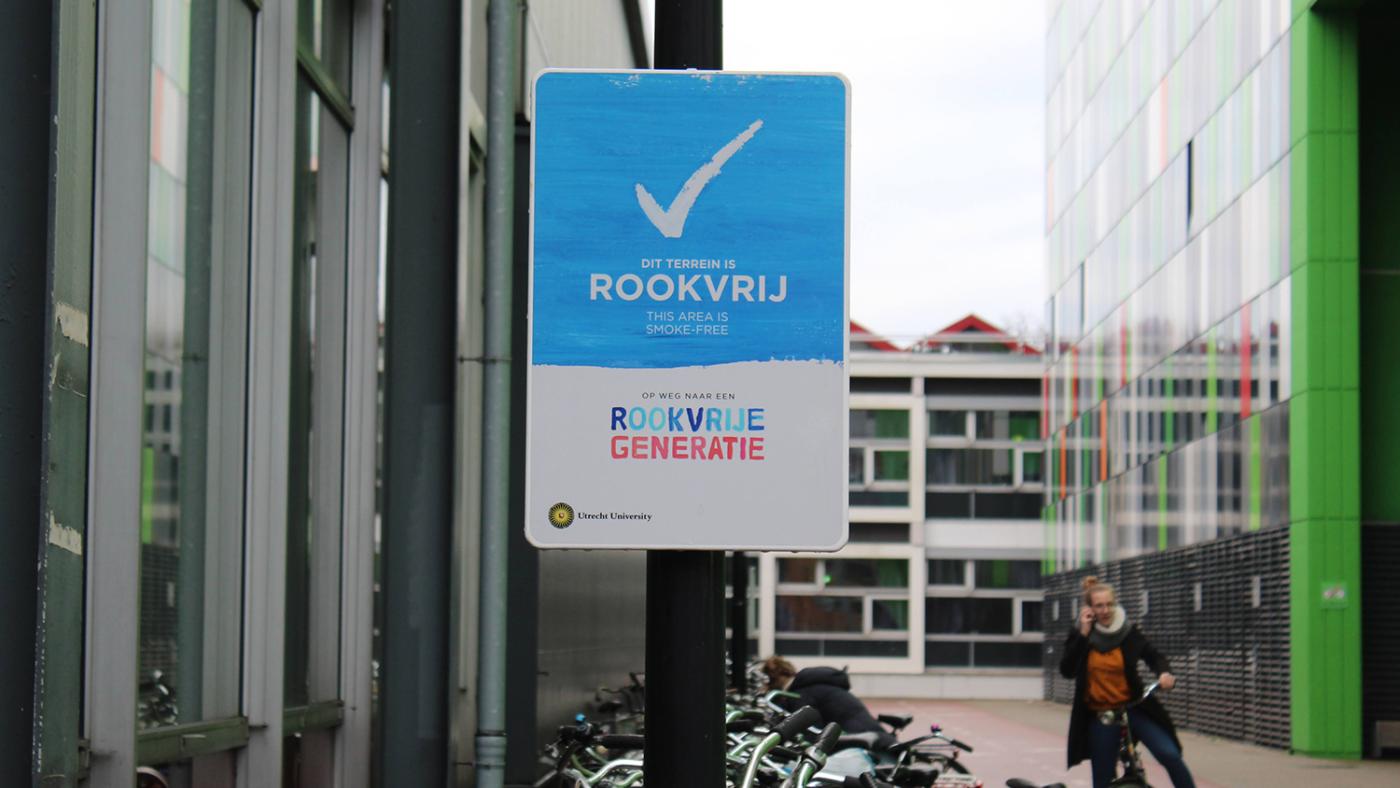Other universities also having a hard time enforcing smoking bans
Hearing on UU's objection to fines for violating smoking ban

The Dutch Food and Consumer Product Safety Authority (Dutch acronym: NVWA) has fined Utrecht University 1,800 euros because the smoke ban hasn't been enforced at Utrecht Science Park. The university argues that it is impossible to do it because the campus is vast and interspersed with public spaces where the smoke ban does not apply. Hundreds of employees would be needed to enforce the ban. The university has therefore objected to the fines. A hearing is taking place on Monday, March 4.
The University of Amsterdam and Amsterdam University of Applied Sciences have also stopped enforcing the ban this year. They have received several thousand euros in fines, but point out that permanently enforcing the ban would cost them two million euros a year, which they consider disproportionate. Instead of enforcing the ban, they have put up humorous no-smoking signs on campus.
Inspection
NVWA doesn't issue fines for the individuals who are smoking where they shouldn't, but rather the institutions that should be enforcing the ban. "We check whether higher education institutions are complying with the rules, as the law now states that no one can smoke on campus”, says a spokesperson.
She insists that there is some leeway in how the rules are enforced. Higher education institutions have extensive grounds and there’s always a chance someone could light a cigarette in a quiet corner; as an institution, there’s not much you can do about that. “But if people are smoking right outside the entrance and security fail to act, or teachers simply join in, then it’s a different matter.”
NVWA does not provide details of the number of fines imposed on institutions, nor does it go into the practical objections. For that information, we have to consult the Ministry of Health.
Response
The ministry insists that the institutions can enforce the ban. “No one expects higher education institutions to organise anti-smoking patrols 24/7”, says ministry spokesperson Ruben van Dorssen. “But we do expect adequate action when it comes to signs, detection, information and policies. Institutions should also take smokers to task where appropriate. These are things we continue to expect.”
And with good reason, he argues. “Educational settings should be all about inspiration and growth; smoking goes against those values. The damage caused by smoking – both active and passive – should not be underestimated. Smoking still causes twenty thousand deaths every year.”
But what about the practical objections raised by the institutions? “In terms of enforcement, there has been plenty of understanding since day one. We know it’s hard to combat all smoking on large sites”, Van Dorssen points out. “But the smoking ban is also part of the institutions’ wider social responsibility.”
Smoke-free generation
Van Dorssen has the impression that the smoking ban is increasingly becoming part of normal life. “Today’s students are used to learning in a smoke-free environment before they come to university. There is still a pressing need to push ahead with making school playgrounds, educational settings and other environments for young people smoke-free, as long as the impact of smoking on our public health is still so huge.”
Paul Blokhuis (ChristenUnie), state secretary at the time, intended for the tightening of the existing smoking ban to be a further deterrent to smoking. One of his considerations was that the school playground is the place where many young people light their first cigarette. It is the government’s aim to create a "smoke-free generation" by 2040.